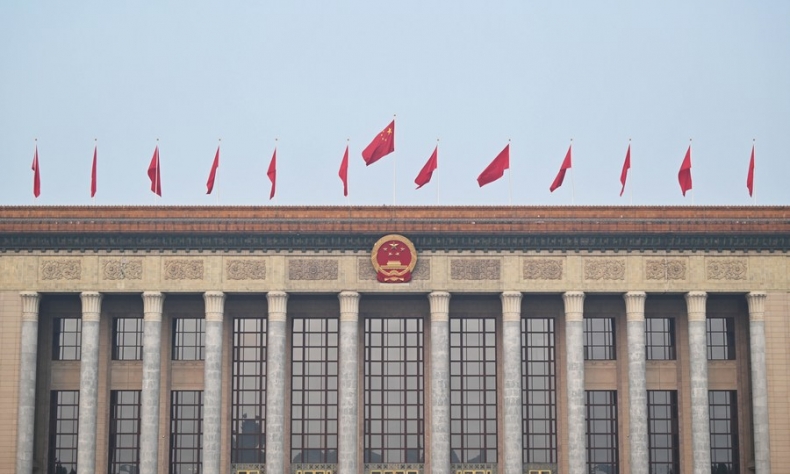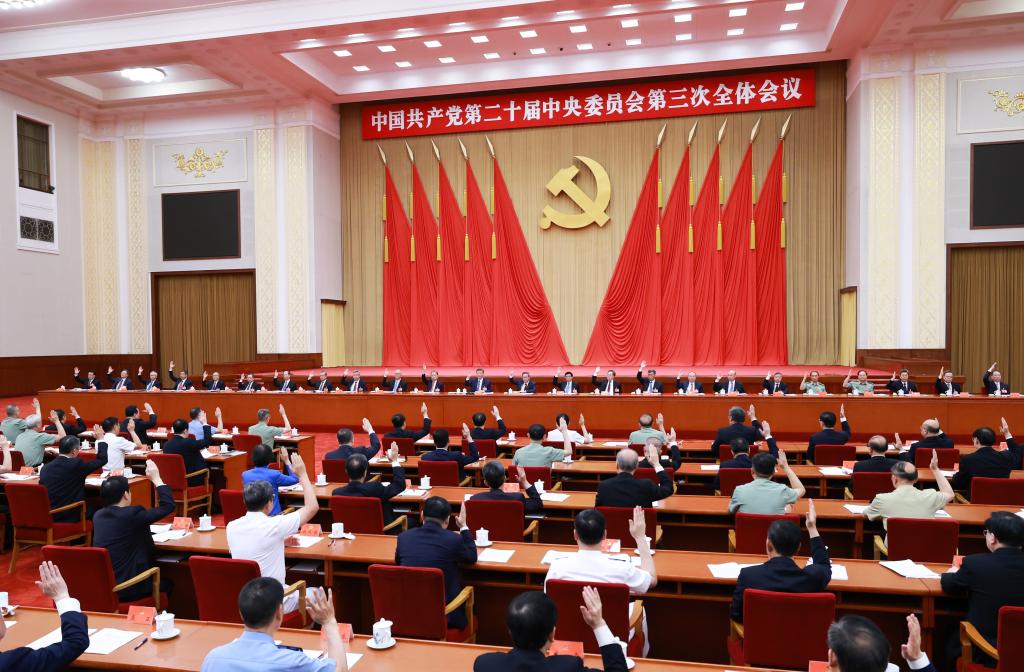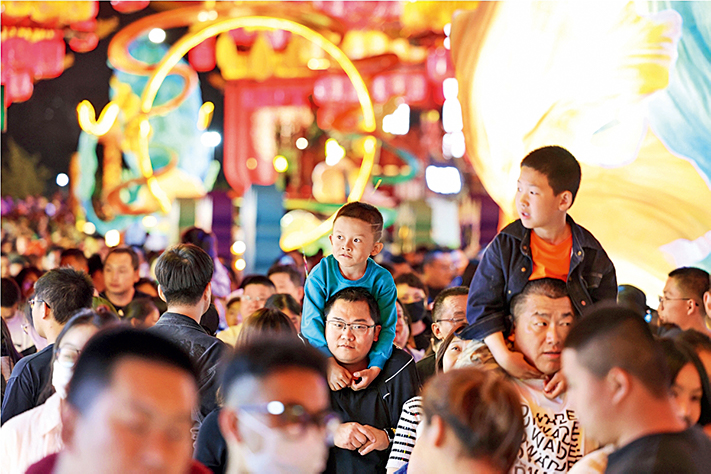A Pivotal Plenum

The third plenary session reaffirmed that the modernisation China pursues is modernisation for peaceful development.
The highly anticipated and keenly watched third plenary session of the 20th Central Committee of the Communist Party of China (CPC) was held in Beijing in July.
Since 1978, the third plenary sessions have held special significance, especially because of their significance in setting the policy agenda for economic growth and modernisation.
The historic third plenary session of the 11th CPC Central Committee in 1978 was the epochal starting point of China’s current economic modernisation, when the reform and opening up policy was launched. The policies heralded a period of high growth that made China the second-largest economy in world. This growth was accompanied by a visible improvement in the living conditions of the people. More than 800 million people were lifted out of poverty, an unprecedented achievement in human history.
The third plenary session of the 20th CPC Central Committee held from 15 to 18 July carried the tradition of making important economic decisions. In the final communique, the top leadership examined issues relating to further deepening reforms comprehensively with a view to advance China’s modernisation.
Reflecting on the CPC’s work since its 20th National Congress which was held in 2022, the third plenary session attendees agreed that “as a result of these efforts, we have achieved economic recovery and growth and have made firm strides in building a modern socialist country in all respects.” And despite the remarkable strides the CPC has made in deepening reforms and advancing Chinese modernisation, “the present and the near future constitute a critical period” in the endeavour to move towards national rejuvenation on all fronts through Chinese modernisation. The theme of further deepening reform comprehensively and opening up has implications not only for maintaining the momentum of China’s economic growth for high-quality development, but also for global recovery for which there is common understanding that China is playing and will continue to play a pivotal role.

Guiding principles
The third plenary session outlined general principles of the country’s foreseeable economic trajectory. It assured to foster “a high-standard socialist market economy” that will also “provide a guarantee for Chinese modernisation.” The session affirmed that the country “must better leverage the role of the market, foster a fairer and more dynamic market environment and make resource allocation as efficient and as productive as possible,” and also pledged to “lift restrictions on the market while ensuring effective regulation,” and “striving to better maintain order in the market and remedy market failures.”
The importance of the third plenary session’s stance in respect to market reforms to developing countries struggling to implement market reforms cannot be lost. Beyond the confidence in the self-regulating nature of the market, a strong and credible “watchman” like state is necessary to ensure not only fair play but also the system’s continued health and resilience.
The third plenary session further outlined that it would “ensure that economic entities under all forms of ownership have equal access to factors of production in accordance with the law, compete in the market on an equal footing, and are protected by the law as equals, thus enabling entities under different forms of ownership to complement each other and develop side by side.
These key general principles, which would certainly be worked into specific policies by the government, greatly illuminate the future path of China’s reform and opening up to the outside world. The implication is China would remain a solid partner to the world as long as openness, inclusiveness, shared responsibility and shared prosperity is the common theme which majority of the humanity adheres to.
The third plenary session of the 20th CPC Central Committee has again contributed to the goal of inclusive globalisation that works for all. To highlight that Chinese modernisation is not one of abstract statistics, the third plenary session vowed that “ensuring and enhancing the people’s well-being in the course of development is one of the major tasks of Chinese modernisation.” The third plenary session pledged to “refine the system for guaranteeing basic public services, work to provide inclusive public services, meet essential needs and provide a cushion for those most in need, and focus on resolving the most practical problems that are of the greatest and the most direct concern to the people, so as to meet people’s aspiration for a better life.”
This means the success of a policy must reflect in an improvement in the quality of life for the people. Most emerging economies have had their growth trajectories vitiated by the emergence of special and vested interests and ended up in the so-called middle-income trap, which China has avoided. The CPC neither has an interest of its own nor represents that of any special interest group; it instead works in the broadest interest of the people.

Peaceful development
The third plenary session reaffirmed that the modernisation China pursues is modernisation for peaceful development and reiterated that in foreign relations, the country would continue to be firm in her commitment to independent foreign policy of peace and dedication to building a community with a shared future for mankind.
China would further integrate and seek to give concrete expression to mankind’s shared values in the course of pursuing the important Global Development Initiative, Global Security Initiative, and Global Civilisation Initiative. It will remain committed to “an equal and multipolar world and universally beneficial and inclusive economic globalisation.”
The plenary session is not only a platform to outline principles that would guide the country’s policy trajectories, but also an important moment to reaffirm what the CPC is, what it stands for, and what energises it. The third plenary session reaffirmed the Party’s fidelity to its ideological creed and theoretical fountains: Marxism-Leninism, Mao Zedong Thought, Deng Xiaoping Theory, the Theory of Three Represents, the Scientific Outlook on Development, and Xi Jinping Thought on Socialism with Chinese Characteristics for a New Era.
The third plenary session demonstrated the discipline, rigour, meticulousness, and methodical approach of the CPC towards governance, which has created China’s economic miracle and is driving the economy to a new level of development.
The author is Director of Centre for China Studies, Abuja, Nigeria.
 Facebook
Facebook
 Twitter
Twitter
 Linkedin
Linkedin
 Google +
Google +










